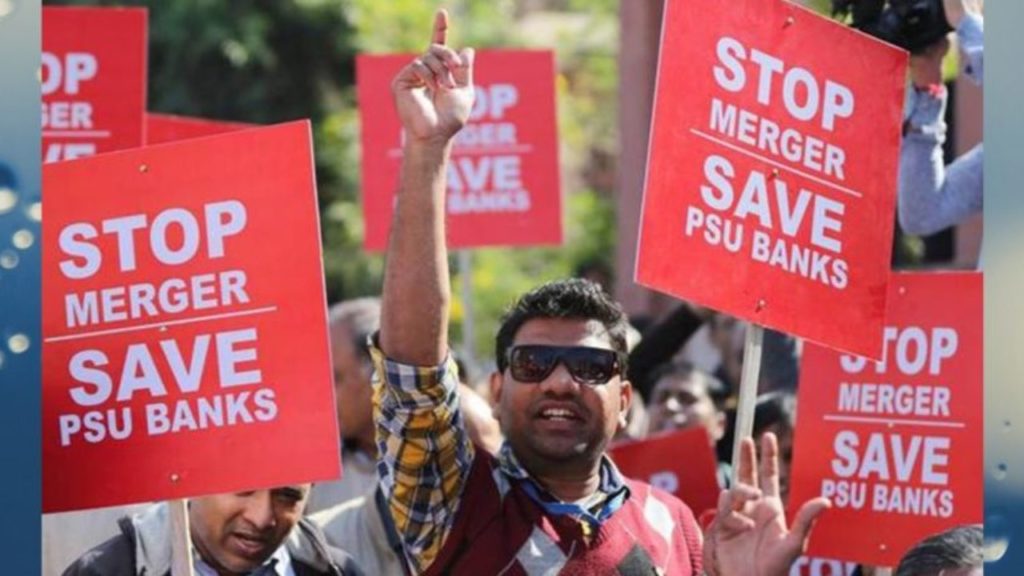
The United Forum of Bank Unions (UFBU), a coalition of nine bank unions, has called for a two-day national strike on March 15 and 16 to oppose the privatization of public sector banks and the introduction of backward banking reforms.
The strike will include over ten lakh bank employees and officers.
All nine banks unions – All India Bank Officers’ Confederation (AIBOC), All India Bank Employees Association (AIBEA), National Confederation of Bank Employees (NCBE), All India Bank Officers’ Confederation (AIBOC), Bank Employees Federation of India (BEFI), Indian National Bank Employees Federation (INBEF), Indian National Bank Officers’ Congress (INBOC) and National Organisation of Bank Officers (NOBO) and the National Organisation of Bank Workers (NOBW) will take part in the strike called by the UFBU.
The strike would interrupt facilities such as branch deposits and withdrawals, search clearance, and loan approvals. ATMs, on the other hand, are likely to remain operational.
Last month, the finance ministry permitted private banks to carry out government-related banking transactions, including taxation, pension payments, small savings schemes, among others. The decision was the first step in privatizing a few state-owned banks.
Finance Minister Nirmala Sitharaman announced the privatization of two public sector banks in addition to IDBI Bank, with the government setting a disinvestment goal of 1.75 trillion rupees for FY22. In 2019, the government sold its controlling interest in IDBI Bank to LIC, and in the last four years, the government has consolidated 14 public sector banks.
It is estimated that approximately 10 lakh bank staff and officers are taking part in the protest.
Devidas Tuljapurkar, UFBU’s Maharashtra Convenor, said in a statement that about 40,000 bank employees and officers operate in about 10,000 bank branches across Maharashtra have participated in the strike.
During the two-day strike, state-run lenders, including the Central Bank of India, have urged their customers to use digital platforms such as the internet or mobile banking, as well as ATMs, to perform transactions.


